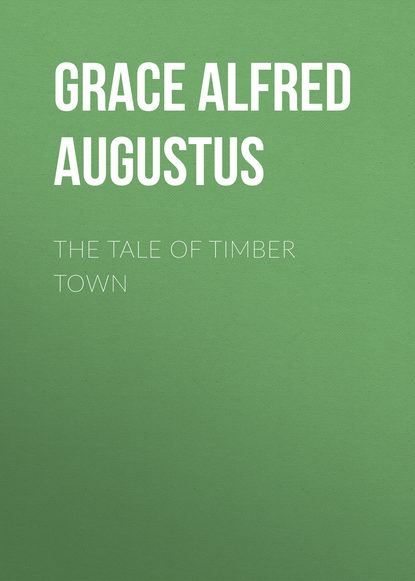По всем вопросам обращайтесь на: info@litportal.ru
(©) 2003-2025.
✖
The Tale of Timber Town
Настройки чтения
Размер шрифта
Высота строк
Поля
“All right, my man. I’m not stealing any of the bags.”
The express-man recognised the voice.
“Is that you, Mr. Crookenden? Beg pardon, sir.”
“Come, come, get the mail aboard. My men don’t want to be out in the boat all night.”
The man carried down his last load of bags, and returned, panting.
“There’s only the paper to be signed,” he said, “and then they can clear.”
“Give me the form.”
The man handed a piece of paper to the mail-contractor.
“How many bags?”
“Eight.”
By the light of the lamps Crookenden signed the paper, and handed it back to the carrier, who mounted to his seat, and drove away.
The merchant went to the edge of the wharf.
“All right, down there?”
“Aye, aye, sir,” replied a gruff voice.
“Then cast off.”
There was the noise of oars, and a dark object upon the waters vanished into the night.
“Good-night!”
“Good-night,” answered the gruff voice faintly, and Crookenden turned his steps towards home.
“That’s all serene,” said the owner of the gruff voice, whose modulations had suddenly assumed their accustomed timbre – the rather rasping articulation of the goldsmith.
“Couldn’t have fallen out better if I’d arranged it myself. Lay to! belay! you lazy lubbers, forrard – or whatever is the correct nautical expression to make her jump. Put your backs into it, and there’ll be five pounds apiece for you in the morning.”
“Alla right, boss; we ze boys to pulla. Rocka Codda, you asleep zere? – you maka Macaroni do alla ze work.”
“Pull yerself, you lazy Dago. Anyone w’d think you was rowing the bloomin’ boat by yourself. Why, man, I’m pulling you round every dozen strokes. The skipper, aft there, is steerin’ all he knows agin me.”
The truth was that Benjamin’s manipulation of the tiller was extraordinary and erratic, and it was not until the boat was well past the wharves that he mastered its mysteries.
The tide was ebbing, and when the boat was in the stream her speed doubled, and there was no need for using the oars. Swiftly and silently she drifted past the lights on the quay and the ghostly houses which stood beside the water.
The Pilot’s system of beacons was so perfect that with their aid a tyro such as Tresco found no difficulty in steering his course out of the harbour.
Outside in the bay, the lights of two vessels could be seen: those of the plague-ship and of the steamer which, unable to get into the port in the teeth of the tide, was waiting for the mails.
But Tresco pointed his boat’s nose straight for the long beach which fringed the end of the bay.
The rowers had seen the mail-bags put aboard the boat, and they now wondered why they did not go straight to the steamer.
“Hi! boss. The mail-steamer lies to starboard: that’s her lights behind the barque’s.”
“Right, my man,” replied Tresco; “but I have a little business ashore here, before we pull out to her.”
The boat was now nearing the beach. As soon as her keel touched the sand, Tresco jumped into the water and, ordering the fishermen to do the same, the boat was quickly pulled high and dry.
“Take out the bags,” commanded the pseudo-skipper.
The men demurred.
“Why you do this? Santa Maria! is alla these mail go back to town?”
“There’s the steamer —out there!” exclaimed Rock Cod. “A man’d think – ”
But he was cut short.
“You saw Mr. Crookenden put the bags aboard. He’s the contractor – I’m only acting under his instructions. Do you wish to remain fishermen all your lives, or would you rather die rich?”
“We know the value of dollars, you may bet that,” answered Rock Cod.
“Then lend a hand and get these bags ashore. And you, Macaroni, collect driftwood for a fire.”
When the mail-bags were all landed, Benjamin took a lantern from the boat, lit it, and walked up the beach to where the fishermen stood, nonplussed and wondering.
“Your feet must be wet, Macaroni.”
“Si, signor.”
“Wet feet are bad, not to say dangerous. Go down to the boat, and you’ll find a bottle of rum and a pannikin. Bring them here, and we’ll have a dram all round.”
Tresco placed the lantern on the sand, and waited.
“You see, Rock Cod, there are some things in this world that cut both ways. To do a great good we must do a little wrong – that’s not quite my own phrase, though it expresses my sentiments – but in anything you do, never do it by halves.”
“I ain’t ’ad no schoolin’ meself,” answered the fisherman. “I don’t take much account of books; but when there’s a drop o’ rum handy, I’m with you.”
The Italian came up the beach with the liquor.
“Here’s what’ll put us all in good nick,” said Tresco, as he drew the cork of the bottle, and poured some of the spirit into the pannikin. “Here’s luck,” and he drank his dram at a draught.
He generously replenished the cup, and handed it to Rock Cod.
“Well, cap’n,” said that puzzled barnacle, “there’s things I don’t understand, but here’s fun.” He took his liquor at a gulp, and passed the pannikin to his mate.





